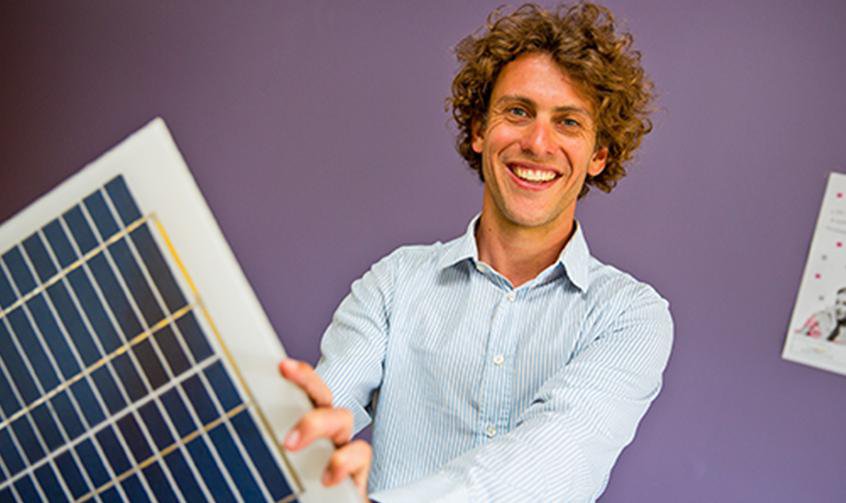"Seeing the world through a humanitarian program is always an eye-opener to understand the development challenges of the world. Well in his twenties and with an French engineering degree in his back pocket, Thomas Samuel set off to a volunteer job for an NGO operating in the electrification of rural areas in India. This experience proved so outstanding in his life that he decided to invest his skills to find a more durable solution to the lack of electricity, a situation that over 1,300 millions of people worldwide experience daily. In 2010, this dream developed into a start-up company, Sunna Design, focusing in advanced photovoltaic streetlighting solutions adapted to any climate, including the most challenging ones in terms of temperature, humidity and wind conditions. In particular, he understood that there was a market need for sturdy, durable solutions, with a lifespan of at least 10 years, and little or no maintenance on all of its components, such as LEDs and batteries, rather than low-cost solutions that would cease to function within months of installation.
''It is not acceptable that public streetlighting turn off at night because of empty batteries'' Samuel says. Lack of streetlighting has direct consequences on security, both from muggers and from car accidents, and on local businesses such as grocery shops, retailers, local restaurants. It also impairs the possibility for children to do their homework after sunset. Thanks to his field experience, Samuel could address a high number of environmental constraints: for example, well aware of the looting of material to be resold on the black market, the solar panels or batteries of his solution ''are specific'' and cannot be reused separately, which acts as a deterrent.
With this long-term approach in mind, he adopted innovation on several domains of the design of his main product, the iSSL+ street light : firstly, the iSSL+ consists of NiMH (Nickel metal hybride) batteries, instead of lead-acid batteries, less expensive but with a short lifespan. Secondly, from a design point of view, the battery is placed directly within the lamp, at the top of the mast, not requiring any connection and out of reach of potential vandals or looters. Thirdly, the LEDs have improved thermal management and their lighting power is controlled through specific algorithms to reduce consumption and improve their lifespan. The solution is scalable, ranging from standalone street lights to intelligent mini-grid systems managing the production and storage of solar energy and its distribution to the different LEDs composing the system.
Apart from having R&D and technology partners in France, such as the INES laboratory and manufacturer ARTS, Samuel has kept tight links with the humanitarian actors. Electricians Without Borders, for instance, purchased 100 street lights for the refugee camp of Zaatari in Jordan, under the supervision of UNHCR, the UN refugee agency. With the hope that, at least in this case, the camp's population will be leading a more normal life elsewhere before the 10 years guaranteed by Samuel's innovative solution."




